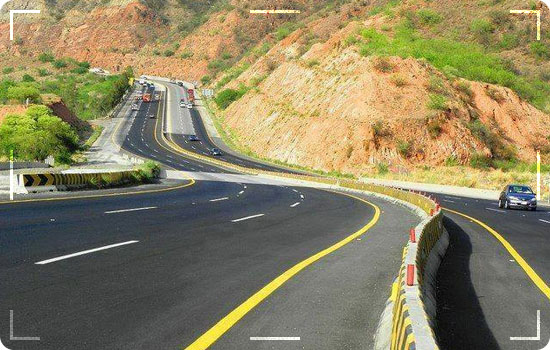Islamabad, March 29: The Sindh government has voiced strong objections to the federal government’s decision to allocate Rs436 billion for a Punjab-centric motorway while neglecting the long-delayed Sukkur-Hyderabad motorway, which had been declared a top priority.
The Lahore-Sahiwal-Bahawalnagar motorway project, recently approved by the Executive Committee of the National Economic Council (Ecnec), also violates the National Fiscal Pact—a commitment signed by the federal and provincial governments under the $7 billion International Monetary Fund (IMF) program.
This pact mandates that sectors such as higher education, healthcare, social protection, and regional infrastructure be managed at the provincial level.
Sindh’s Minister for Local Government, Housing, and Town Planning, Saeed Ghani, raised objections during an Ecnec meeting, arguing that the federal funding for the Punjab motorway was unjustified when work on the 306km Hyderabad-Sukkur motorway (M-6) remained stalled due to a lack of funds.
Disparity in Road Project Allocations
Ghani criticized the decision to fund the 295km Lahore-Bahawalnagar motorway at a higher cost of Rs436 billion, while the Sukkur-Hyderabad motorway, spanning 306km, has an estimated cost of nearly Rs400 billion but remains unfunded.
This week, National Highway Authority (NHA) Chairman Sheheryar Sultan informed the Senate Standing Committee on Planning that the government was still exploring financing options for the M-6 motorway.
Yet Ecnec’s official summary stated that the Lahore-Sahiwal-Bahawalnagar motorway would be fully funded through the federal Public Sector Development Programme (PSDP).
Pakistan’s severe financial constraints, coupled with the IMF’s restriction on federal funding for projects under provincial jurisdiction, further complicate the situation.
Read More: NHA Collects Just 13% of Toll Tax Revenue from Highways
Provinces receive 57.5% of federal tax revenue, yet the Sukkur-Hyderabad motorway—the only missing link in the North-South road network—remains neglected.
Federal Justification & Project Breakdown
Federal Minister for Planning, Ahsan Iqbal, defended the move, explaining that Ecnec’s approval covered only Package-I (a) of the Lahore motorway, spanning 18.5km from the Lahore Ring Road to the Raiwind-Kasur Road Interchange, through PSDP funds.
He claimed the remaining sections would undergo feasibility studies, and the Punjab government would be approached for a 50:50 funding arrangement before a new PC-1 proposal is submitted.
Despite this explanation, Ecnec listed the full Rs436 billion project among 13 major schemes, totaling nearly Rs1.3 trillion, that were approved.
The Lahore-Sahiwal-Bahawalnagar motorway comprises two sections:
A six-lane, 220km section beginning from Lahore Ring Road, passing through Hujra Shah Muqeem, Depalpur, Okara, Sahiwal, Chichawatni, and Harappa, before connecting to National Highway (N-5) near Kassowal.
A four-lane, 75km section, branching off near Depalpur, passing through Pakpattan, Arifwala, and Michanabad, while crossing the Sutlej River.
Korean Loan & Construction Progress
The project’s revised PC-I was recommended by the Central Development Working Party (CDWP) in June 2024. CDWP stipulated that Phase-I of the project—spanning 51.5km—would be funded through a $269 million (Rs75 billion) loan from South Korea’s Economic Development Cooperation Fund (EDCF).
Documents reveal that work on Phase-I (a) of Package-I (the 18.5km Lahore Ring Road to Raiwind-Kasur Road Interchange segment) has already entered the advanced stages of procurement.
The Frontier Works Organisation (FWO) emerged as the lowest bidder, with Package-I (a) estimated to cost Rs17.4 billion, including Rs3.7 billion for earthwork.
Also Read: NHA Increases Toll Tax on Motorways and Highways for the Third Time in Just 7 Months
Since 90% of the required land for Package-I (a) has been acquired, Ecnec was urged to allow construction to commence using PSDP funds, with Package-I (b) proceeding once full funds are secured.
Sindh’s Unaddressed Concerns
Despite these approvals, Sindh’s concerns remain unresolved. The Sukkur-Hyderabad motorway continues to face funding uncertainty, even though it is a crucial part of Pakistan’s national road network, while the Lahore motorway moves forward with direct federal financing.
Ghani and other Sindh officials continue to push for equal infrastructure investment, questioning why one project receives full backing while another, critical to national connectivity, is left in limbo.









